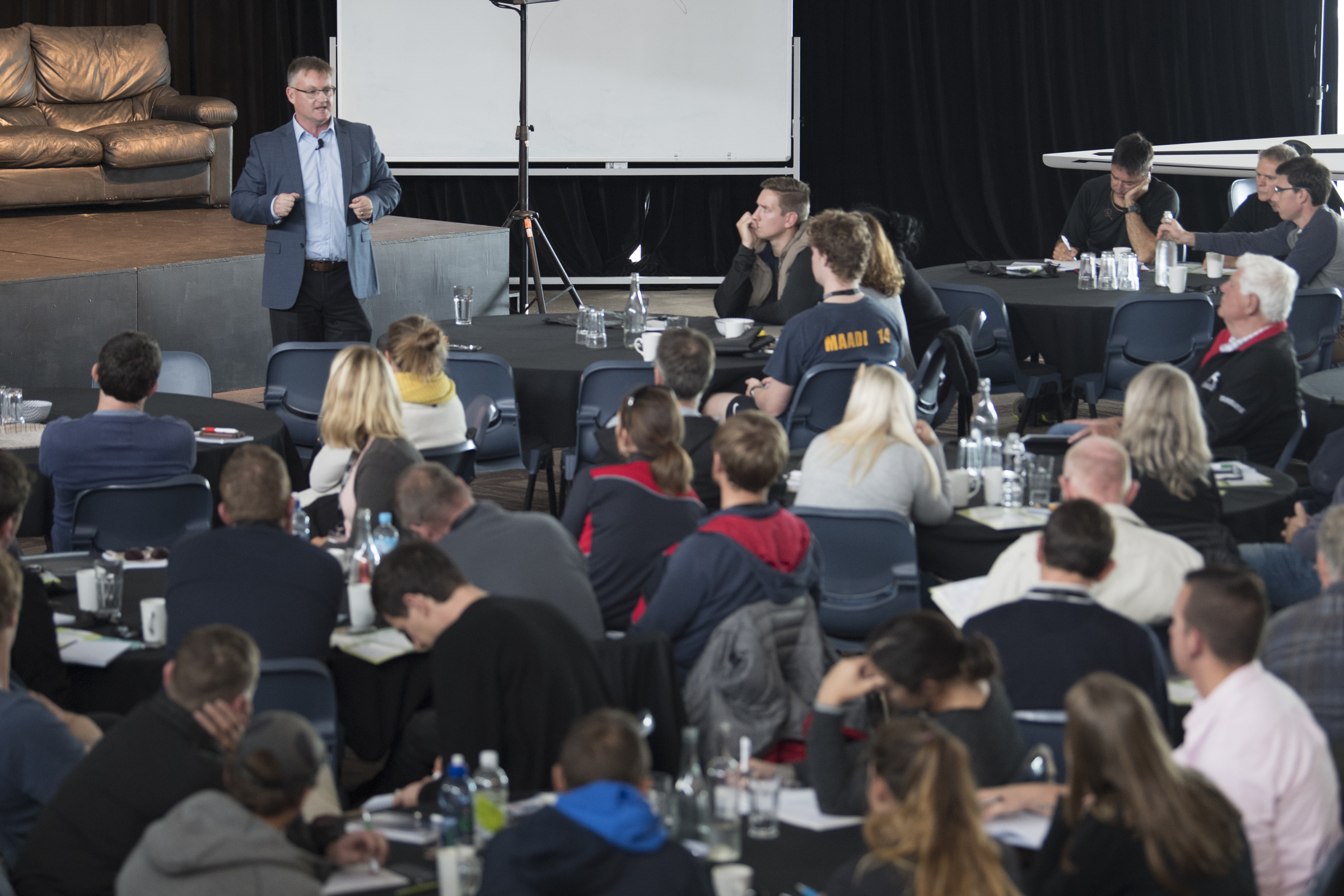Recruiting a Head coach – how NOT to do it.

The issue of hiring the right head coach is a hotly debated topic in all the newspapers, television sport shows and Internet sporting sites.
So how do you go about finding the right head coach for your team?
Because there are thousands of ways of doing it right – let’s start with how NOT to do it!
How not to recruit a head coach.
- Make recruitment decisions based on the coach’s coaching reputation alone; Lots of sporting organisations make this mistake. Often reputation – particularly in professional sport – is artificially created by media and marketing professionals, public relations staff, professional management groups and press agents. It is critical that the people charged with recruiting the new head coach go behind the rumour and rhetoric and complete a detailed, professional, thorough, rigorous recruitment process – one which identifies who the potential head coach really is – not what his / her management agent wants the world to think he / she is.
- Keep the players out of it; Huge mistake! Particularly in these times of player empowerment and engagement. Players have a big stake in the selection of the right head coach – in some cases their own careers depend on the head coach recruitment process. At a minimum, the captain and another senior player should be invited to be part of the selection panel – in a perfect world, all players will play some role in the process and have their views listened to and respected.
- Allow the Board to make the decision behind closed doors without an objective, professional recruitment process; Another very common mistake made by sporting organisations. Think about hiring a head coach like employing a carpenter or builder to build you a new home. You will have strong views about the finished product. You will want to have some input into the design. You will want to choose materials and paints. But then, once you have expressed your opinion, you would step back and let the professionals do the actual building. For some reasons most sporting Boards do not get this last bit.
- Start the recruitment process without understanding what it is they are looking for; Another biggie! Often sporting organisations will start looking for a head coach before they have clearly identified what they want from the role or even where they are heading as an organisation. The first step in any journey is to decide where it is you want to go. Then all it takes is for someone to develop a process to get there. But if you don’t know where you are going, then it doesn’t really matter who you get for head coach.
- Put a Coach Recruitment Panel together who do not understand coach recruitment. Typically Boards will do one of two things – put together a Head Coach Recruitment Panel of people from inside the Club, Board members, the Executive, former players etc or hire an external recruitment company to organise the recruitment process on their behalf. Neither option is ideal. The “inside” model often ends up with an introspective process and an appointment which reflects “the way we have always done it here”. Hiring a professional recruitment company might give you a great process but often they lack understanding of sport and the unique role of head coach.
- Make the decision on coaching record alone without any consideration of personality, cultural fit, leadership, team development ability or communication skills; Many companies make this mistake – promoting the best mechanic to be Manager of Engineering or promoting the best teacher to be Principal. Being a great skills coach or hands on coach is a very different role to that of head coach. The skills set for being a great skills / assistant coach are based very much on possessing a detailed knowledge of the skills, techniques, tactics and strategies of the sport. The skill set for a head coach can include public relations, team development skills, leadership, public speaking, Board and Executive level communication skills, resource management, financial management and conflict resolution. Coaching record by itself does not usually distinguish a great head coach from a great skills coach. Sometimes great assistant coaches are just that – assistant coaches whereas real leaders may emerge from a different pathway.
- Offer the coach a five year commitment; Some sporting organisations get bullied into making long term commitments by the coach or their management team but in the majority of cases, long term coaching contracts lead to complacency and a lack of urgency. Not only that but if things are not working out, and you have a five year commitment to the coach it could cost a lot of money to get out of the contract. Keep coaching contracts to three seasons maximum with a possible option clause if the coach achieves the clear deliverables stated in their contract.
- Offer unproven coaches total control over the performance environment; In the old days, sporting organisations recruited head coaches then stood back and allowed them to change everything – people, systems, structures, players, staff, management, policies and operations. Now – hopefully – sporting organisations are much smarter and they recruit coaches to give them the technical expertise they need to take the next step. The head coach is like any other employee – they are recruited to help the organisation achieve it’s corporate objectives and business goals – not to change everything. Think of it this way – do Coca Cola hire a new CEO and tell them to change the flavour? Does Apple hire a new CEO and ask them to change the brand?
- Offer proven coaches total control over the performance environment; What we do know about sport is that success rarely repeats. A huge mistake sporting organisations will make is to recruit a head coach based on their coaching record with another team, then allow the head coach to change everything in the organisation to make it like their former Club. What has worked in another Club is almost guaranteed NOT to work somewhere else. Sporting systems – no matter how successful they appear to be – do not work outside of the culture which created them.
- Offer the coach a guaranteed income regardless of the performance of the team; Name one thing in the world that works well where failure is rewarded equally to success. Some sporting organisations commit to coaching contracts where coaches receive annual pay increases regardless of the performance of the team. So what you are saying is, “We recruited you to help us win games but even if you don’t win games we will give you more money each year” – is it just me……..or is this on the left side of insane?
- Sign a contract with the coach without doing detailed, thorough systematic research about their previous appointments; There is nothing dumber in sport than seeing sporting organisations recruit coaches who failed badly in their previous positions and believing things will be any different now the coach is with another team. Do your homework! If a coach has been sacked for their lack of communication abilities and their poor anger management, chances are these personality flaws will resurface under pressure or in similar situations at their new Club.
- Sign the coach without clearly and precisely agreeing to outcomes, deliverables, how and when performance will be measured, roles and responsibilities; The majority of problems arising in sporting organisations as far as the head coach is concerned are due to a lack of role clarity. Get professional, legal advice when designing a coaching contract and make sure all parties clearly understand it. Build a detailed, independent, objective review process into each season and review the head coach’s performance on an ongoing basis.
Summary:
Recruiting the right head coach is a critical step for any sporting organisation.
The head coach is not only the technical leader of the organisation but in many cases is the public face of the Club or even the sport. Whereas recruiting the right head coach can impact positively on the performance culture of the organisation for many years, the wrong coach can spell the end of the organisation’s opportunity for success for two or three generations of athletes.
With such an important decision, sporting organisations need to adopt a clear, professional process and be rigorous, thorough and methodical with research and background checks.
The head coach recruitment process is not the place for rumour, anecdote, “mates mates”, old boys clubs, media pressures or uninformed pub opinion – it can be the most important decision made by a sporting organisation and as such must be supported by professional thinking, detailed research and a forensic approach to understanding who the coach is, what they stand for and what they can potentially add to your performance environment.
Wayne Goldsmith


2 Comments
Marcos Apene do Amaral · September 25, 2009 at 2:50 am
As usually, very good piece of advice and consultation! Pretty practical!
Keep the good thoughts coming, Marcos
Wayne Goldsmith · October 12, 2009 at 1:50 pm
Thanks Marcos,
The first step is of course deciding what the organisation needs from a head coach…the rest is easy. The problem is most organisations don’t really know what they want so the whole process of finding the right head coach becomes more difficult than it needs to be.
WG